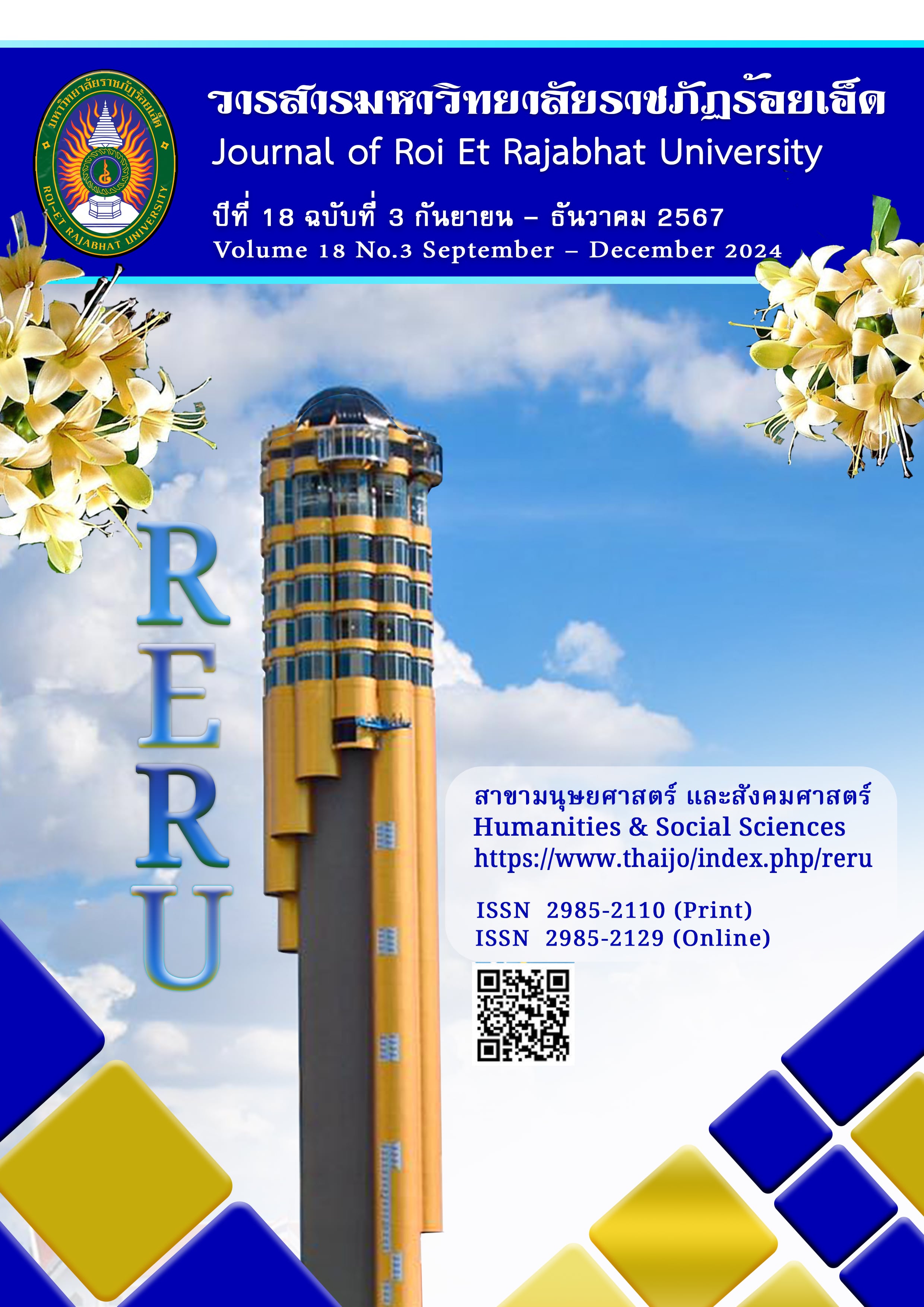Factors Enhancing the Performance of Cosmetic Sales Staff in Bang Kapi District
Keywords:
Performance, Staff, CosmeticAbstract
This study aimed to examine the performance levels of cosmetic sales staff and investigate the factors associated with their job performance in the Bang Kapi district. The population consisted of 100 sales representatives from private companies in Bang Kapi. Data were collected by questionnaires and analyzed using the chi-square statistical method to test the research hypotheses.
The study found that the majority of cosmetic sales staff in private companies in Bang Kapi were female, aged between 25 and 30, held a bachelor's degree, earned a monthly income of 20,000 - 25,000 baht, was single, and had a work tenure of 2 to 4 years. Regarding job performance, the overall competency level of the sales staff was rated high. The assessed dimensions included personality, work motivation/ attitudes, knowledge, skills, and self-perception. The study identified three factors that contributed to enhancing job performance: creativity, job satisfaction, and work-life balance. However, the hypothesis testing revealed that these factors were not significantly associated with job performance. Sales staff with varying performance-enhancing factors exhibited similar performance levels, except for those with work-life balance as a core factor, who showed a higher proportion of low performance compared to other groups. Nonetheless, it implies that performance-enhancing factors are not significantly related to the job performance of cosmetic sales staff in Bang Kapi.
References
จิราพร ถนอมกิตติ. (2566). ปัจจัยสมรรถนะของหัวหน้างานที่ส่งผลต่อประสิทธิภาพการปฏิบัติงานของพนักงานในการทำงานที่บ้าน (Work From Home) ของพนักงานบริษัทเอกชนในเขตกรุงเทพมหานคร. สารนิพนธ์ การจัดการมหาบัณฑิต สาขาวิชาการจัดการ. กรุงเทพฯ: มหาวิทยาลัยมหิดล.
บุรินทรวรวิทย์ พ่วนอุ๋ย. (2565). แรงจูงใจในการทำงานในยุคปรกติใหม่. วารสารวิชาการ Veridian E-Journal, 15(1), 1820-1832.
รัตนชัย ม่วงงาม. (2560). 10 วิธีทำธุรกิจรับเหมาก่อสร้างแบบมีกำไร. สืบค้นเมื่อ 10 มกราคม 2566, จาก
https://www.thaismescenter.com
วิทย์ เที่ยงบูรณธรรม. (2541). การจัดการสมัยใหม่. กรุงเทพฯ: สมาคมส่งเสริมเทคโนโลยี (ไทย-ญี่ปุ่น).
วรเทพ สุวรรณภูษาภรณ. (2563). ความตั้งใจซื้อเครื่องสำอางของลูกค้าในประเทศไทยผ่านช่องทางสื่อสังคมออนไลน์. วารสารรัชต์ภาคย์ มนุษยศาสตร์และสังคมศาสตร มหาวิทยาลัยรัชต์ภาคย์, 18(57), 363-378.
Amabile, T. M. (1996). Creativity and innovation in organizations. Harvard Business School Background Note, 396(239), 1-17.
Clark, S. C. (2000). Work/family border theory: a new theory of work/family balance. Human Relations, 53(6), 747-770.
Judge, T. A., Thoresen, C. J., Bono, J. E and Patton, G. K. (2001). The job satisfaction–job performance relationship: A qualitative and quantitative review. Psychological Bulletin, 127(3), 376–407. https://doi.org/10.1037/0033-2909.127.3.376
McClelland, D. C. (1973). Testing for competence rather than for intelligence. American Psychologist, 28(1), 1-14.
Locke, E. A. (1969). What is job satisfaction?. Organizational Behavior and Human Performance, 4(4), 309-336.
Downloads
Published
How to Cite
Issue
Section
License
Copyright (c) 2024 Roi Et Rajabhat University

This work is licensed under a Creative Commons Attribution-NonCommercial-NoDerivatives 4.0 International License.
บทความที่ได้รับการตีพิมพ์เป็นลิขสิทธิ์ของวารสารมหาวิทยาลัยราชภัฎร้อยเอ็ด
ข้อความที่ปรากฏในบทความแต่ละเรื่องในวารสารวิชาการเล่มนี้เป็นความคิดเห็นส่วนตัวของผู้เขียนแต่ละท่านไม่เกี่ยวข้องกับมหาวิทยาลัยราชภัฎร้อยเอ็ด และคณาจารย์ท่านอื่นๆในมหาวิทยาลัยฯ แต่อย่างใด ความรับผิดชอบองค์ประกอบทั้งหมดของบทความแต่ละเรื่องเป็นของผู้เขียนแต่ละท่าน หากมีความผิดพลาดใดๆ ผู้เขียนแต่ละท่านจะรับผิดชอบบทความของตนเองแต่ผู้เดียว





